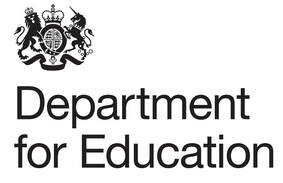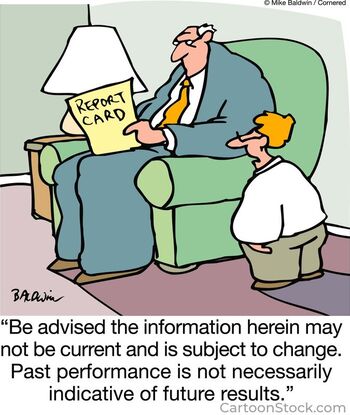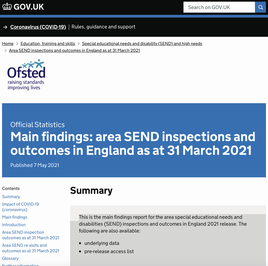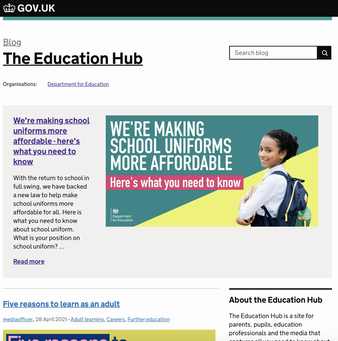|
Douglas Silas,
Specialist SEN Solicitor 24th May 2021
Give yourself time to panic…
That probably seems a bit of a strange thing for me to say, but please bear with me and hopefully things will make sense to you when I have finished! We are all human and things do not always go the way we have planned them to. This may be because of a genuine mistake that we or someone else has made, that could or should have been foreseen, or it may be because of a genuine accident, that nobody could have foreseen. But it is no good at these times for someone (even yourself) to tell you not to panic - that is a completely unnatural reaction or instinct for most people. So, unless you are very experienced and have been through the same or a similar situation before; or are that character in a movie or TV show you saw once, that is always very cool in a crisis, you will panic. (N.B. please note that this is not usually real life and just comes from somebody's imagination as a scriptwriter). But, although we usually panic when something goes wrong, it is about how we then deal with that panic that is important. As I say, there is no good saying don't panic, as we respond with 'fight', 'flight' or 'freeze'. Human nature usually dictates that when we panic, we try to do something quickly to try and stop things before they get any worse. But that often actually makes things harder to come back from than they were before (remember the phrase: 'Be careful what you wish for'). In my view, the best way of handing a crisis is just to accept that you are going to panic and therefore be realistic and give yourself the time to panic. As a result, this additional time (it doesn't have to be for very long) will then give you the space to calm yourself, to look at things as objectively as possible and then to work out the best thing for you to do to resolve the situation as best you can. In fact, that extra time may even be enough time for the crisis to resolve itself naturally. Also, remember to narrow your vision, so that you only focus and concentrate on the thing or things that you need to do and, if you determine that things are going to take more time to sort out, explain what is happening to other people so that they know what you are going through and how long it may take. You may be surprised at how understanding people may be. It's always better also if you can share your crisis with somebody else since, as many people often say, a problem shared is a problem halved. To sum it up, when something bad or unforeseen happens to you, give yourself time to panic and to focus on the problem, then work out what you need to do, then do it!
In this week's SEN Update, you will find sections entitled:
I know how busy everyone always is, so please feel free just to read the sections that are of interest to you or read everything; the choice is always yours.
Don’t forget, to ensure that you never miss one, you can get my SEN Updates personally by completing your email details above,
or by following me on one of the social media platforms I use (i.e. Twitter/Facebook). You can also share this SEN Update with others (please only do so if it may be relevant to them) by using one of the icons, usually to the right or at the bottom of this page.
FOOD FOR THOUGHT
Things were a bit quieter again on the SEN front in the news this week, although there was a bit of discussion/criticism of a few things, which gives food for thought. Although I will direct you as usual below to some other stories in the news online that I found of interest, I thought that I would first also highlight a few of these things here, which I think are also worth taking the time to read: Ofqual: bias against disadvantaged and SEN pupils ‘common’ in assessments Give struggling pupils four years to retake GCSEs, says catch-up tsar Focus on preschools during Covid recovery, UK ministers urged Teachers' grades biased to more 'agreeable' pupils Gavin Williamson to face legal challenges over claims children denied Right to Education during lockdown
THE AUTISM SHOW
One of the things I used to do when writing these SEN Updates termly/half-termly, was to try and look ahead to forthcoming SEN events. Although, during the past year or so, most 'in-person' events have gone 'online' (usually successfully), with all the Covid-19 related news, I think that I may have overlooked a few things. If so, please accept my genuine apologies. But, in this week's update, I thought that I would draw your attention again to the forthcoming 'The Autism Show' webinar week that is taking place on 14th – 19th June 2021, which says on their website: 'Welcome to The Autism Show: Webinar Week An online learning series: In partnership with the National Autistic Society. The Autism Show has gone digital again to offer you over 30 hours of new online learning, designed to make a positive difference to the autistic children and adults you care for, support or teach. Over six days in June, you will have the opportunity to watch a huge range of webinars live streamed from across the UK and beyond. Our webinars will provide you with the latest autism news and views, practical strategies and approaches, and direct insights from adults on the spectrum. You’ll be able to learn from the experiences of other attendees and have the opportunity to quiz the speakers for personalised advice via the in-webinar chat box. Your ticket also includes 30 day access to stream recordings of all the week’s webinars, so you don’t need to worry about missing any and can watch when it’s most convenient to you. Plus, you can watch a whole host of additional pre-recorded webinars from a selection of autism specialist suppliers. In this, our 11th year, we are particularly excited by our world renowned speaker line-up which includes Dr Temple Grandin, Dr Peter Vermeulen, Carol Gray and Dr Wenn Lawson.' You can find out more and book tickets here: The Autism Show.
LATEST NEWS ONLINE
And here are the other news articles that I found of interest: Why Ofsted is wrong about TA support for SEND pupils SEND education in crisis as Ofsted and Observer highlight provision and budget shortfalls of over £0.5 billion Ofsted: 9 in 10 parents say their child’s school handled Covid well ASCL comments on Ofsted Parents Survey for 2021 No 10 ‘tried to block’ data on spread of new Covid variant in English schools
Again, aside from clicking on the relevant links for more information, I would also remind you of the very useful resources and information provided on the following websites:
- IPSEA - Council for Disabled Children - Contact - Scope - Special Needs Jungle I would also highlight again the fact that you can now get a digital copy of the magazine: Autism Eye which is very helpful to any parents or professionals involved with children/young people with Autism. Keep safe until next week. With best wishes Douglas.
P.S I understand that there are many educational items, news articles, or other useful resources on the web, so I would be very grateful if you could let me know of any that you find that you think that others may find useful, so that I can direct people to them.
How useful do you find my SEN Updates?
Created with Quiz Maker
Douglas Silas,
Specialist SEN Solicitor 17th May 2021
Don’t offer your advice unless you’re specifically asked for it…
Unfortunately, how often does someone tell us about a problem that they are having, or we find ourselves discussing something that has caught our attention in the news, do we start to offer our perspective or advice, without being asked for it. This often makes a difficult situation much worse than it has to be; for example, because the other person was just wanting to get something off their chest and confide in us, or because the difficult situation that we have identified is actually a very complicated one and our simplistic and often ill-thought out answer is way off the mark, as it only sees things from one perspective. Things are not always what they seem, or just because you haven't seen something, doesn't mean that it hasn't happened. Or you can be interpreted as taking sides if there is an argument, which might well curry favour with the person you seem to be siding with, but may then lose you all credibility with the person on the other side of the argument, or other people who are watching from the sidelines. There will be a perception of 'bias'. I see this all the time I'm afraid, from my position as a lawyer, as there is often not just one 'right' and one 'wrong' in a given situation, but many people on opposite asides of an issue can be both right and wrong on many things (and sometimes even the same thing) at the same time! But, what I really want to highlight for you today, is the need for you not to feel that you have to offer your advice in every situation, unless you are specifically asked for it. Even then, you need to still first look at things from as many different perspectives as you can, before saying anything. In fact, the less you say sometimes, the better, as the more you say, the more it can be interpreted differently to how you meant it, especially if what you say is taken out of context, or another meaning projected onto it. So, as I say, be careful and only offer your advice if you are specifically asked for it.
In this week's SEN Update, you will find sections entitled:
I know how busy everyone always is, so please feel free just to read the sections that are of interest to you or read everything; the choice is always yours.
Don’t forget, to ensure that you never miss one, you can get my SEN Updates personally by completing your email details above,
or by following me on one of the social media platforms I use (i.e. Twitter/Facebook). You can also share this SEN Update with others (please only do so if it may be relevant to them) by using one of the icons, usually to the right or at the bottom of this page.
SEND REPORTS
I am going to cheat a little this week, by slipping two things into the first section of this update! One is new, but one is about a month old, but is still worth highlighting. The new thing is a press release issued by Ofsted, entitled: 'Some pupils with SEND missing out on specialist support': "A new research report shows that some pupils with SEND in mainstream schools are not getting enough help to support their learning and development. Some pupils with special educational needs and/or disabilities (SEND) in mainstream schools are not getting enough help to support their learning and development, even when external services are involved, according to a new research report by Ofsted. Read the Supporting SEND report. Published today, the study finds that specialist support from multi-agency services often complements the support offered by schools. Although families and school staff value this external support, it is not always timely or implemented appropriately. Many of the schools and families participating in the research had experienced long wait times and high levels of bureaucracy in the education, health and care (EHC) plan process. In some instances, families were commissioning or paying for additional services themselves. This suggests that the playing field is not level for pupils from poorer backgrounds. Through different case studies, the research identifies important issues that influence how in-school support, therapies and other multi-agency services are provided for pupils with SEND. The findings include the following." The other (not so new) thing that I want to refer to is the report entitled: "Forgotten. Left behind. Overlooked." where the All Party Parliamentary Group (APPG) recently reported on experiences of young people with SEND. The best summary I have found is on nasen's website, which reads: "The All Party Parliamentary group for SEND have issued their report into the impact of Covid-19 pandemic on educational transitions for young people with SEND. The group collated input from oral evidence meetings and written evidence around young people’s mental health and wellbeing and learning. It is quite challenging reading and has shone a spotlight on some of the inequalities within the education system and how Covid-19 amplified these and left young people with SEND feeling like an ‘afterthought’. The key findings are:
You can read the full report for yourself here.
UPDATED COVID-19 GUIDANCE
I received another email this week from the SEND Division at the Department of Education (DfE), entitled: 'Updated Guidance for SEND and Specialist Settings', which said: "Dear colleagues, Guidance updates Following the Prime Minister’s statement yesterday regarding the further easing of lockdown restrictions from the 17 May, we have updated our SEND and specialist settings - additional operational guidance: COVID-19. This guidance should be read alongside the main pieces of guidance for schools and post-16: Schools COVID-19 operational guidance and Further education COVID-19 operational guidance, which have also been updated to reflect the upcoming changes. Also updated yesterday was the guidance for Early years and childcare providers, Out of school settings and higher education providers The key changes within the SEND guidance are:
Please see the guidance on the COVID-19 response – Spring 2021 (Roadmap) for additional information. PPE Portal All Special Schools in England are eligible to access the personal protective equipment (PPE) portal provided by the Department of Health and Social Care (DHSC). The PPE portal allows eligible providers to order free PPE on a weekly basis for their Coronavirus (COVID-19) PPE requirements. Since January 2020, all special schools will have received an email asking them to register with the PPE portal. Those who have not registered will shortly receive another email invitation from [email protected]. This email invitation will be sent to the email address which your setting used to register with the DfE Get Information About Schools Database. This is the only email address which is eligible to register. Please ensure that you have checked your junk folder. If you have not received the email invitation or would like to change your registered email address, please contact the Customer Service team at 0800 876 6802 who will be able to help support you in registering with the portal. All other settings should refer to the safe working in education, childcare and children’s social care settings guidance to understand how they can access PPE to meet their Covid needs. Many thanks Special Educational Needs and Disability Division"
LATEST NEWS ONLINE
And here are the other news articles that I found of interest: Pupils in England ‘waiting up to five years for special needs plan’ Helping pupils in England catch up on lost learning will cost £13.5bn – report Councils in England facing funding gaps plan to cut special needs support
Again, aside from clicking on the relevant links for more information, I would also remind you of the very useful resources and information provided on the following websites:
- IPSEA - Council for Disabled Children - Contact - Scope - Special Needs Jungle I would also highlight again the fact that you can now get a digital copy of the magazine: Autism Eye which is very helpful to any parents or professionals involved with children/young people with Autism. Keep safe until next week. With best wishes Douglas.
P.S I understand that there are many educational items, news articles, or other useful resources on the web, so I would be very grateful if you could let me know of any that you find that you think that others may find useful, so that I can direct people to them.
How useful do you find my SEN Updates?
Created with Quiz Maker
Douglas Silas,
Specialist SEN Solicitor 10th May 2021
You can’t be good at everything...
Try as we might, we can never be good at everything we put our hand to. There will always be people who are better or worse than us at things and, so too, there will always be things that we are better or worse at than others. We just have to accept this fact, as to do otherwise will just infuriate us, since we will constantly be trying our best to achieve something all the time, but will then find, to our disappointment (and sometimes anger or despair), that somebody has got there before or after us. You will therefore always drive yourself crazy if you think like this - there is no clearer path to madness. So, through a process in life of 'hit and miss' we gradually need to work out what our strengths and weaknesses are and then play to our strengths and minimise our weaknesses. This doesn't mean that we should not still enjoy doing the things we may not be so good at, especially if they bring us pleasure, but we should recognise that we will probably not excel at them and then concentrate our time on things that we can do better. And the irony of all of this is often that, when other people tell us we cannot do something just because they may have seen us try and fail, perhaps a few times, it is sometimes the moment when we then become more determined to prove them wrong and usually ultimately succeed at the things they said we could never do! And a further irony is that we can then use the principles that we learn through these trials and tribulations of achieving this, to be successful at something else!! Yet, despite this, the initial principle usually remains the same - you cannot be good at everything and it is easier if we eventually accept this.
In this week's SEN Update, you will find sections entitled:
I know how busy everyone always is, so please feel free just to read the sections that are of interest to you or read everything; the choice is always yours.
Don’t forget, to ensure that you never miss one, you can get my SEN Updates personally by completing your email details above,
or by following me on one of the social media platforms I use (i.e. Twitter/Facebook). You can also share this SEN Update with others (please only do so if it may be relevant to them) by using one of the icons, usually to the right or at the bottom of this page.
MENTAL HEALTH AWARENESS WEEK
Thankfully, there was a fair bit of information I saw that I thought I would bring to people's attention this week. In fact, ironically, there was more this week than I could highlight in my first two sections, so I have put more links in the third section under 'Latest News Online'. In this first section, I want to highlight mental health again. I saw that it is 'Mental Health Awareness' this week. We are all very aware of the impact the pandemic this past year or so has had on the mental health of our children and young people. I then realised that, after looking, I had overlooked noting that 'Children's Mental Health Awareness' week was at the beginning of February! However, after some further research, I came across the website for the 'Mental Health Foundation' and there found a number of useful bits of information about 'Mental Health Awareness Week 2021', which the year's theme is 'Connect with Nature'. I found my way to a webpage where you can download a 'Connect with Nature School Pack', which says: "Connecting with nature in a great way you can help young people improve and maintain their mental health and wellbeing. Our ‘Mental Health in the Pandemic’ study found that going for walks outside was one of our top coping strategies and 45% of us said that being in green spaces was vital for looking after our mental health. The Mental Health Foundation’s Peer Education Project is a Secondary School-based project that gives older pupils the tools to deliver mental health lessons to younger pupils. The project has worked with pupils and staff from participating Secondary Schools to create the Connect with Nature School Pack, which is available for all schools across the UK. This school pack will provide the materials and resources needed to support pupils to connect with nature in a meaningful way. The pack is designed to be used in secondary schools, but it has lots of useful information for primary schools too. It is available in English and Welsh. The pack includes:
Hope this helps.
AREA SEND INSPECTIONS AND OUTCOMES
This week Ofsted also published their official statistics on 'Main findings: area SEND inspections and outcomes in England as at 31 March 2021'. Obviously, you can click on the link if you want to read everything for yourself (there are a number of charts), but they also provide a helpful summary of things, which says: "This is the main findings report for the area special educational needs and disabilities (SEND) inspections and outcomes in England 2021 release. The following are also available:
This release contains:
lmpact of COVID-19 (coronavirus) On 17 March 2020, all routine Ofsted inspections were suspended due to the COVID-19 pandemic. As a result, we suspended area SEND inspections and re-visits to local areas that had been required to produce a written statement of action (WSoA). We have included all reports published by 31 March 2021 in this release. Between October 2020 and March 2021, Ofsted and the Care Quality Commission (CQC) carried out a series of interim area SEND visits, visiting 10 local areas across the country. Participating local areas will remain anonymous, but learning has been shared in several thematic national reports. Main findings Since 2016, Ofsted and the CQC have carried out joint inspections of SEND arrangements in 116 of the 151 local areas across England. Just over half (59 out of 116) of the areas inspected have been required to produce and submit a WSoA to Her Majesty’s Chief Inspector (HMCI). This is an indication of significant weaknesses in the local areas’ SEND arrangements. The proportion of local areas required to produce a WSoA varies across the country. At a regional level, the proportion of local areas with a WSoA ranges from 1 in 4 in London, to more than 4 out of 5 in the East of England. Inspection outcomes have not varied much in the last 3 years. Relatively similar proportions of local areas have been required to produce a WSoA each year, from just over half to under two thirds. Twenty-one local areas have received a re-visit. Inspectors determined that 9 local areas were making sufficient progress in addressing all the significant weaknesses identified during their initial inspection."
LATEST NEWS ONLINE
And here are the news articles that I found of interest: Call for masks to remain compulsory in England’s schools Popularity at school linked to age position in class – study Secondary school pupils no longer advised to wear masks in class, Williamson confirms Autism more common in children in England than previously thought – study Pupils should keep wearing masks into the summer, Sage told ministers Covid: Poor pupils fall further behind in maths Infection rates dropping in schools: What does the latest data show
Again, aside from clicking on the relevant links for more information, I would also remind you of the very useful resources and information provided on the following websites:
- IPSEA - Council for Disabled Children - Contact - Scope - Special Needs Jungle I would also highlight again the fact that you can now get a digital copy of the magazine: Autism Eye which is very helpful to any parents or professionals involved with children/young people with Autism. Keep safe until next week. With best wishes Douglas
How useful do you find my SEN Updates?
Created with Quiz Maker
Douglas Silas,
Specialist SEN Solicitor 4th May 2021
You can't finish something until you start it...
We too often (and too easily) fantasise in our minds about how good something is going to be after we finish it, that we sometimes actually forget to start it in the first place! We then find when we eventually do, that it is by then too late to do everything that we wanted to, or in the way that we wanted to do it, so we then find ourselves with our backs up against the wall, trying to meet a deadline. Actually, I'm not against deadlines - in fact, I think that deadlines are good things. Setting yourself self-imposed deadlines is also important if you really want to get something done. I remember reading once a quote from somebody successful saying that they did not need more time, they needed a deadline! In fact, setting yourself a deadline is especially good where you tell another person (or other people) publicly about it. This is because you are then ultimately accountable to them and so will do whatever you can not to let them down. People say that it's very easy to let yourself down, but it's much harder to let another person down. To meet deadlines properly, you always need to start something as early as possible, workout properly what you have to do, create a timeline and then try and stick to it. You then constantly need to prioritise and re-prioritise, as things usually never go the way you planned. So always build in a little extra time for yourself to do things. Finally, you should always break big tasks down into lots of little ones and do them (successfully) one at a time. You will be amazed later to then look back and see how much you have achieved by doing things in this way, expending much less effort than you had at first thought the overall job would take. But like so many things - you will have to first try to do things in this way and be prepared to fail a few times but be willing to learn from your mistakes, before you will see that it actually works Go on, try it!
In this week's SEN Update, you will find sections entitled:
I know how busy everyone always is, so please feel free just to read the sections that are of interest to you or read everything; the choice is always yours.
Don’t forget, to ensure that you never miss one, you can get my SEN Updates personally by completing your email details above,
or by following me on one of the social media platforms I use (i.e. Twitter/Facebook). You can also share this SEN Update with others (please only do so if it may be relevant to them) by using one of the icons, usually to the right or at the bottom of this page.
YOU CAN END UP IN A DIFFERENT PLACE TO WHERE YOU STARTED
When I started writing this first section, I was intending to share with you an article I had seen on the Council for Disabled Children's website. However, whilst then trying to find the original source of the writing, I found myself reading a number of things on the Department for Education's 'blog' called: 'The Education Hub', with recently published articles entitled: We're making school uniforms more affordable - here's what you need to know Everything you need to know about summer schools What you need to know about Primary School National Offer Day So, I have first provided the above links to the articles, which you may find useful.
BUT YOU CAN AWAYS GO BACK AGAIN
As I say, I was at first going to share with you an article I had seen on the Council for Disabled Children's website, entitled: 'Minister Ford Publishes Blog on Her Visit to Special Schools and the Impact of the Pandemic on Children and Families',. It reports on the writings from Vicky Ford MP, the Parliamentary Under-Secretary of State for Children and Families, about her visits to Special Schools during the pandemic. But just because it didn't make it to the first section, I'm still including it here, so you can still read it for yourself if you want to.
LATEST NEWS ONLINE
There was actually quite a lot of news of interest this week. Here are the news articles that I found useful: Lockdowns hurt child speech and language skills - report Autistic teens face 'barbaric' treatment, parents tell MPs NSPCC child abuse helpline has record call numbers in pandemic Labour says catch-up scheme ‘failing’ as tuition reaches only 1% of pupils in England Ministers urged to ‘come clean’ over pupil funding changes in England Schools struggling to access tutoring programme for disadvantaged children
Again, aside from clicking on the relevant links for more information, I would also remind you of the very useful resources and information provided on the following websites:
- IPSEA - Council for Disabled Children - Contact - Scope - Special Needs Jungle I would also highlight again the fact that you can now get a digital copy of the magazine: Autism Eye which is very helpful to any parents or professionals involved with children/young people with Autism. Keep safe until next week. With best wishes Douglas
How useful do you find my SEN Updates?
Created with Quiz Maker
|
Archive
March 2022
|
© Douglas Silas Solicitors 2005-24
Authorised and Regulated by the Solicitors Regulation Authority (SRA no: 643718)
‘Douglas Silas Solicitors’ is the trading name of ‘Douglas Silas Solicitors Limited’, a limited company registered in England & Wales (company no: 10689991), whose registered office is Gable House, 239 Regents Park Road, Finchley, London, United Kingdom, N3 3LF. A list of members/directors may be inspected at our office.
Authorised and Regulated by the Solicitors Regulation Authority (SRA no: 643718)
‘Douglas Silas Solicitors’ is the trading name of ‘Douglas Silas Solicitors Limited’, a limited company registered in England & Wales (company no: 10689991), whose registered office is Gable House, 239 Regents Park Road, Finchley, London, United Kingdom, N3 3LF. A list of members/directors may be inspected at our office.





















 RSS Feed
RSS Feed







